“The Day After Abbas”: Strategic Implications for Israel
Udi Dekel and Noa Shusterman, with permission of INSS

Udi Dekel and Noa Shusterman, with permission of INSS
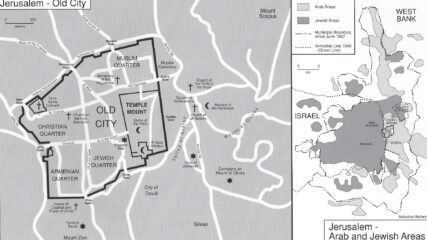
Since the 1920s the Sacred Esplanade of Jerusalem came to symbolise the bone of contention in the conflict over Palestine. The maintenance and even definition of the lines of division between the communities was a clear aim of the British authorities from 1920-1948. The communal/religious conflicts intensified after 1967 with the Israeli capture of East Jerusalem and other Arab-populated territory, which left neither side fully content.

Nine pre-conditions that enabled Arab-Israeli negotiations to unfold successfully in the 1970s and 1990s are not present today. Egyptian-Israeli and Jordanian-Israeli agreements occurred because the respective sides wanted them and needed them.
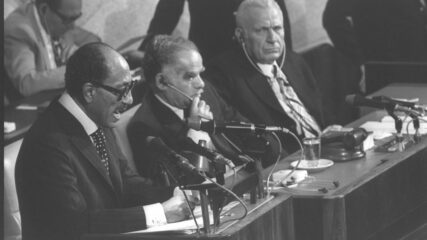
November 25, 2020 By Ken Stein Leadership is about knowing your objectives and adjusting and implementing the tactics to accomplish them. Leadership is also about choices and consequences. It is about making political trade-offs. November…
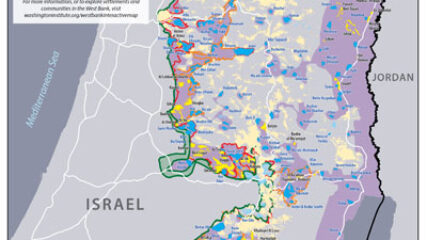
Israeli prime minister Binyamin Netanyahu has repeatedly declared that he will be putting forward his proposal for West Bank annexation as early as July 1. Yet uncertainties about his plans still abound, indicating that this timetable may not be met despite his assertions to the contrary.
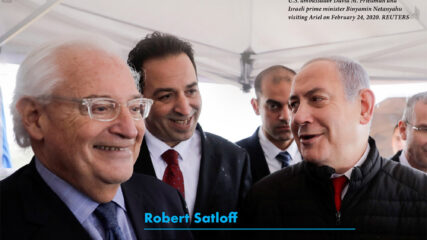
With permission, read full article at Washington Institute for Near East Policy. https://www.washingtoninstitute.org/policy-analysis/view/wrestling-with-annexation-the-elusive-search-for-a-policy-rationale As soon as next month, Israel’s new government could approve plans to annex a substantial portion of the West Bank. The trigger…

The announcement by US Secretary of State Mike Pompeo that “the establishment of Israeli civilian settlements in the West Bank is not, per se, inconsistent with international law” is in line with Israel’s official position, and its inherent message – that preoccupation with the question of the legality of the settlements narrows Palestinian flexibility and discourages the achievement of a negotiated resolution to the conflict – is correct. However, the announcement’s practical value is minor, and there are even potential risks and costs for Israel.

The idea that has arisen recently of holding elections in the Palestinian Authority appears more serious at this stage than in the past. The main promoter of the idea is Abu Mazen, who advocates separate elections: first for the parliament, and only later for the presidency. Although Hamas has long demanded that the two elections be held simultaneously, a change in Hamas’s stance is evident, following its declaration that it is willing to proceed with the elections, while hinting that it might consent to Abu Mazen’s plan. Yet despite the positive attitude that the PA and Hamas are currently displaying toward elections, it appears that there are still many other barriers to overcome.

Watch as two pioneers of Israeli-Jordanian peace assess the state of their countries’ relations on the 25th anniversary of their historic 1994 peace treaty.

Until a political plan is announced the economic one is unlikely to progress. Two key issues are whether Israel will cooperate in the creation of a Palestinian state, and can the Palestinians create a unified, democratic and effective government within such a state. These remain very open questions.

The existence of a large Arab minority within the State of Israel has presented the Israeli leadership and Jewish society in the country with a challenge that continues to help shape the fundamental character and historical entity of the state.
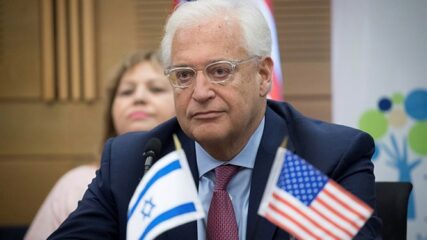
Ambassador David Friedman nearly changed U.S. policy with a request to use “Judaea and Samaria.”
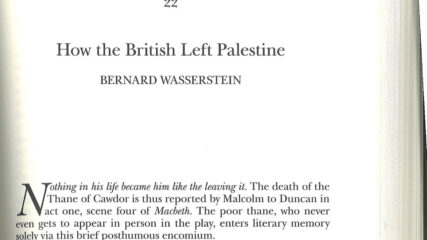
By Bernard Wasserstein Included as a 15-page chapter in the 2019 book Serendipitous Adventures With Britannia: Personalities, Politics and Culture in Britain, edited by Wm. Roger Louis and used with permission, this overview of the…

For almost 100 years, the Declaration has represented, for the Palestinians, the political beginning of Palestine falling out of their influence and into the control of the budding Zionist movement.
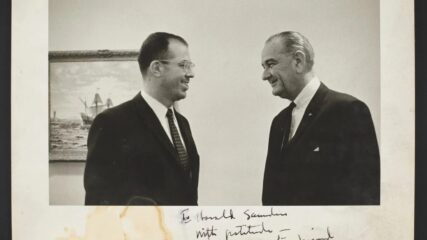
Many in the Arab world and amongst Palestinian leaders believe that, for the sake of evenhandedness and justice, the U.S. government, a longtime supporter of Israel’s security and existence, should have openly endorsed and urged others to vote for the proposition of Palestinian state recognition at the United Nations. Criticism of the U.S. failing to do so has been harsh, but it is also without perspective or historical context. What is forgotten is the persistent, even aggressive, perhaps unprecedented role that Washington has played in pushing for Palestinian rights, self-determination and, most recently, for Palestinian statehood.

Ambassador Alan Baker (ed.), Israel’s Rights as a Nation-State in International Diplomacy, published in 2011 by the Jerusalem Center for Public Affairs and the World Jewish Congress. The importance of this book arose in light…

Should the United States become centrally or peripherally involved in monitoring a cease-fire and the movement of a cease-fire into a new status-quo for Gaza, the contents of this MOU could constitute a workable outline for helping enforce calm in Gaza and on its borders.

“The Quest for Arab-Israeli Peace: Israel’s Disengagement from the Gaza Strip: Precedents, Motivations and Outcomes” Zionism Fulfilled.- Israel’s preemptive physical disengagement from the Gaza Strip in August 2005 was the result of a national consensus;…
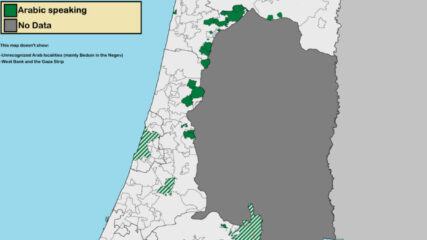
During the May 2021 Israeli-Palestinian clashes, Arab citizens of Israel clashed with Jewish Israelis. By comparison in October 2000, similar clashes were longer, more intense with similar underlying causation. Read the context with the findings of the Or Commission that investigated them.

Note by the author: As a faculty member at Emory University, I wrote several articles per month for national and local newspapers. This article appeared in October 2002 in the Orlando Sentinel. The idea for a trusteeship to be possibly be considered to manage the Israeli-Palestinian relationship emerged from my decades of study of the Palestine Mandate, understanding the concept of separation of the two communities that was offered by the British on more than one occasion during the 1930s and 1940s, and the American suggestion in early 1948 to create a trusteeship for Palestine’s future. Martin Indyk, a US diplomat published an article about considering a trusteeship as a future political option in a Foreign Policy magazine article in July 2003.
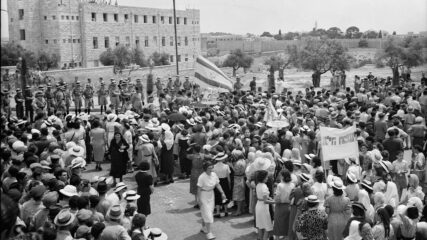
“A Zionist State in 1939,” Dr. Kenneth W. Stein, CHAI (Atlanta), Winter 2002 “Had not the Nazi crimes been committed against Jews during World War II, the Jewish State would have never come true.” So…

Perspective provides valuable insights in evaluating contemporary diplomacy. Though neither the Palestinian-Israeli-U.S. summit of July 2000 nor the Egyptian-Israeli-U.S. summit of September 1978 ended discussions between Israel and its Arab adversaries, there were more differences than similarities between the two intense and highly charged meetings.

Kenneth W. Stein, “The Arab-Israeli Peace Process,” Middle East Contemporary Survey, Vol. XXIII, 2000, Bruce Maddy-Weitzman (ed.), Westview Press, pp. 48-76. For some aspects of Arab-Israeli relations and negotiations, the beginning and end of 1999…